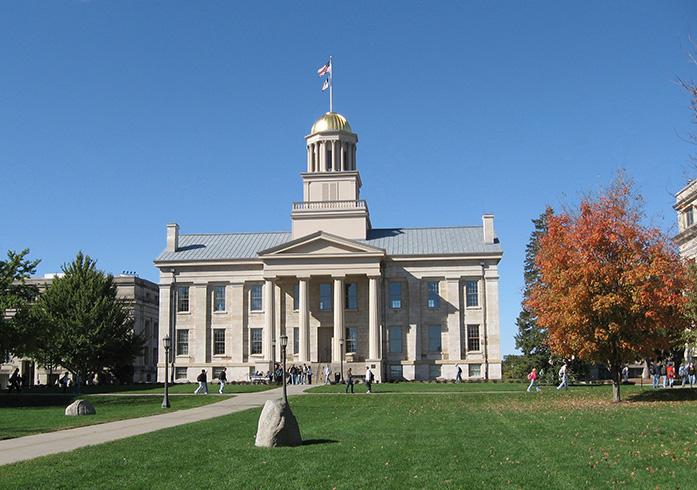Access to care for those suffering from mental illness still an issue in Iowa.
By Megan Sanchez
[email protected]
At 8 a.m. on the dot, the phones are ringing at University Counseling Service, with students on the other end hoping to secure one of the few available spots for same-day appointments.
By 8:02 a.m., the appointment book is full.
While the conversation on Iowa’s campus last week was centered on Homecoming, another conversation was happening across the nation. Mental Illness Awareness week took place Oct. 4 through Oct. 10. In Iowa City, a standup comedy event, resource fair, and social-media campaign called “#IAmStigmaFree” were all a part of the week’s schedule.
However, a recent report found that the University of Iowa ranks as the lowest-staffed university for counseling in the Big Ten. Director of University Counseling Service Barry Schreier said he often hears what he calls “stories of the gap.”
“If mental health is a chief health concern on this campus, then we have to take a look at the priority in which we make the resource,” he said. “All those stories of ‘I couldn’t get in, they wouldn’t see me’ … those are stories of ‘the gap,’ because there’s a gap between health concern and resources to meet it.”
Schreier said a student who calls the Counseling Service today would face about a three-week wait for an appointment. This time of the semester can cause students to be in distress with midterm examinations, so the demand for services is peaking.
There are two ways to make an appointment at the Counseling Center — call to schedule an appointment for weeks out or same-day appointments. This past week, the Counseling Service increased the number of same-day appointments from four to eight.
Schreier said the Counseling Service is working to rethink the current same-day call-in structure because the demand is so high, and it’s not a working system.
Access to care is an issue not just on the UI campus but across the entire state. Mary Issah, the executive director of the National Alliance on Mental Illness in Johnson County, said though the county is “a service-rich” area, she realizes there is still a lack of care for those suffering from mental illness.
“You get 20 miles outside of Iowa City, and people do not have the services they need,” she said. “To get to a doctor, to have therapy, is either a drive to Iowa City, or they’re waiting two to three months longer than they need to.”
Over the summer, two mental-health facilities in the state were closed — one in Clarinda and one in Mount Pleasant. Gov. Terry Branstad was sued for his decision to issue the closings, and judges are expected to make a decision on whether he violated the law in the next 30 days.
Issah said she sees a stigma associated with mental illness. People tend to hide it or not want others to know about it.
Jordan Clemsen, a 21-year-old resident of Solon, lives with Asperger’s — an autism-spectrum disorder. He said he defines stigma as “lack of understanding.”
“I think if people really understood how much pain you really have to go through, I feel like people wouldn’t be so hard on it,” he said. “It’s painful. It’s very painful. I can’t compare it to any other pain. It hurts, but I think what feels better is if you are able to take that hurt and find a way to turn it into something better.”
Despite the obstacle facing the Counseling Service and the state of Iowa in terms of addressing mental-health concerns, Schreier said he remains hopeful and believes it is important to bring light to these issues.
“Unless [it’s] a bedsheet or a towel, things don’t do well in the closet,” he said. “Bringing these things out in the open allows people to talk about them, acknowledgement, sort of acceptance into the community, and those are all such curative factors in and of themselves.”



